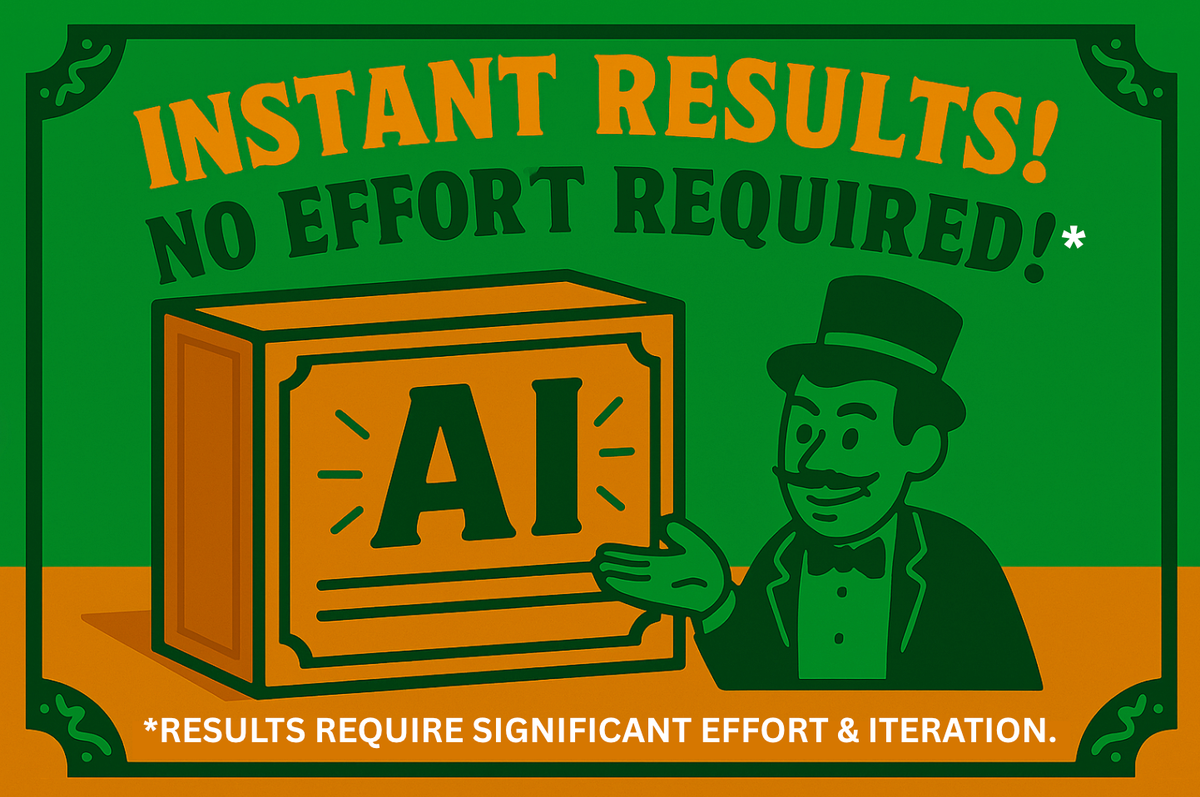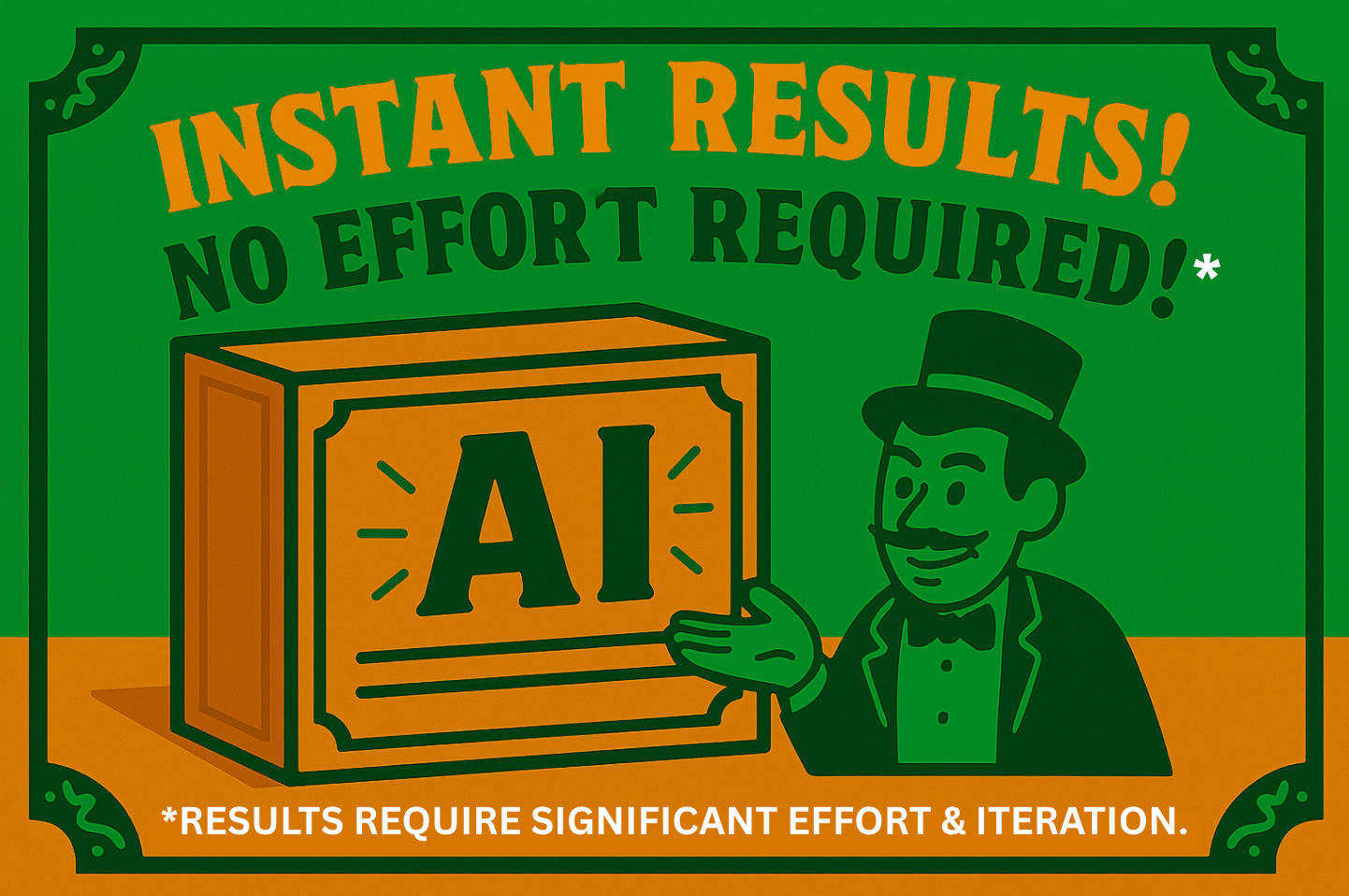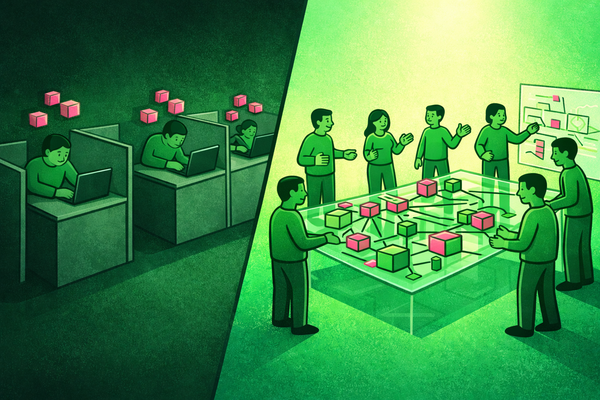AI Has a Marketing Problem
Built by engineers, sold as magic, delivered as more work for the rest of us.

You spent six months pitching your AI pilot to leadership.
Built the ROI deck, got it approved, then celebrated the win.
Three months later, it stalls.
Your team isn't using it and the results are underwhelming.
There's no hope of scaling.
And here's what nobody's saying out loud: you're wondering if this is on you.
If maybe you're the one who can't figure out what everyone else says is "incredible."
Or if you made a career-limiting bet on tech you don't actually understand.
That feeling? That's not you being incompetent.
It's you being lied to.

You Were Sold Magic
AI is marketed as revolutionary.
Push a button, get results.
The reality? It takes iteration, experimentation, and a lot of effort to figure out where it fits.
But that's not what's flooding your LinkedIn feed.
Instead you see:
"This tool will replace your marketing team."
"Automate everything in 5 minutes."
"Transform your business overnight."
These lines get clicks, but they also wreck expectations.
So people try AI expecting instant magic.

Then they hit the messy reality of prompt iteration and workflow redesign.
When it doesn't deliver magic immediately, they don't blame its marketing.
They blame themselves.
They think: "Everyone else figured this out. Why can't I?"
Or they write AI off entirely and tell themselves the tech isn't ready.
Meanwhile, your competitor made it work.
They're not smarter.
They stopped buying the bs.
Companies Winning With AI Almost Made the Same Mistake
They could've over-hyped it internally.
Or promised instant transformation and set their teams up for the same disappointment.
But they caught themselves.
Instead of selling magic, they told the truth: this is a capability to build, not a solution that works out of the box.
They educated their teams on where AI fits into their work.
They made iteration expected, not a sign something's wrong.
They gave people permission to experiment without the pressure of immediate ROI.
And they were patient enough to let their teams figure it out.
That's the difference.
Not brilliance, reality.
Stop Selling AI Like Vendors Do
Your job isn't to hype AI internally.
Instead, set realistic expectations and help your team build capability.
Here's what that looks like in practice:
In your next team meeting, say this:
"This is going to take more effort than we originally thought. That's normal. The companies winning with AI spent months figuring out where it fits. We're going to do the same thing. Iteration is the process."
Then give them this permission:
"Try things. Break things. Share what works and what doesn't. We're building a new muscle here. This takes time."
Fix the expectations.
That's when the tools start working.






